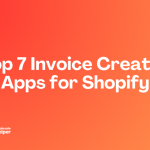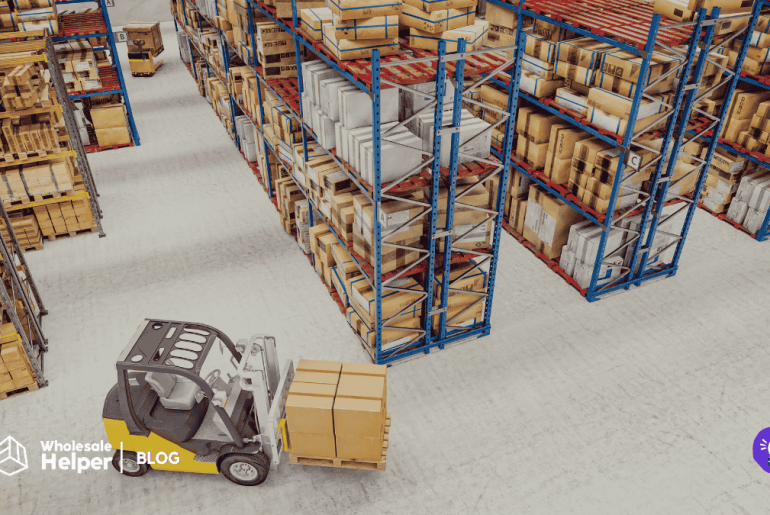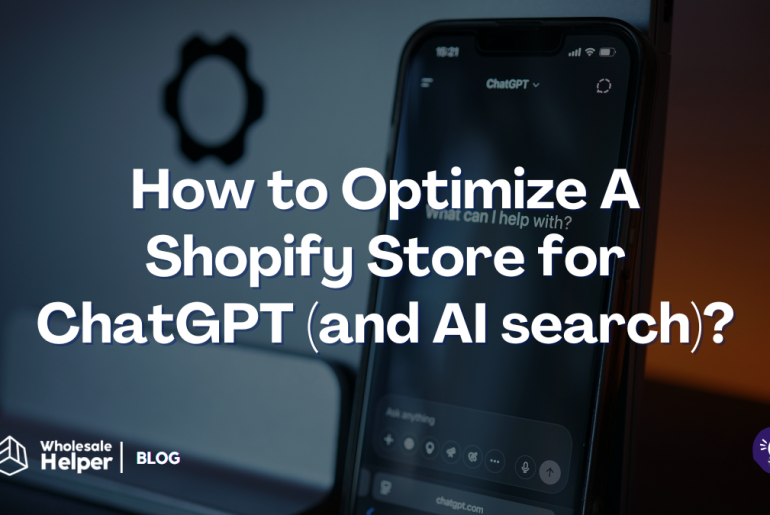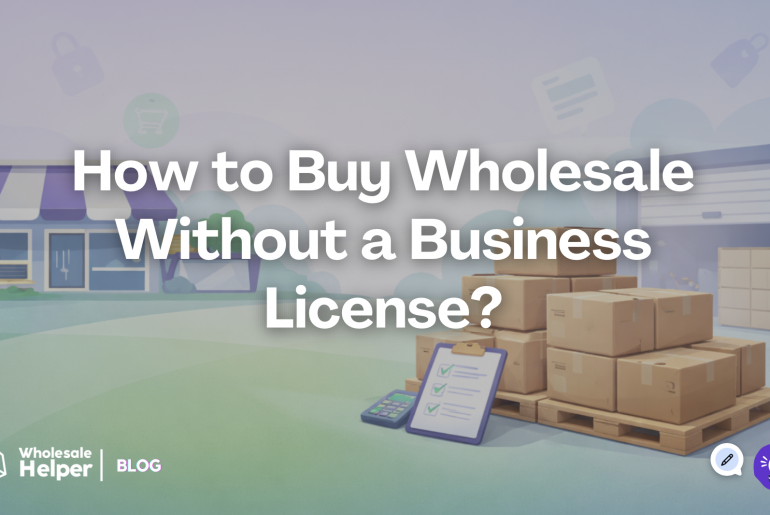Do you own a B2B wholesale business? If your answer is yes then you have landed at the right place. Today’s B2B wholesale industry is money-making and profitable, but at the same time, it is also competitive. B2B wholesale is the type of business that involves the transaction of products and services with the companies, rather than with direct consumers.
This blog post will discuss everything you need to know about B2B wholesale. It will cover topics such as the types of businesses that participate in this market, the products and services that are commonly offered, and the benefits of doing business in this sector. We will also discuss the steps to set up a B2B wholesale business by adding custom pricing and tiered discounts, controlling access management, wholesale shipping, and much more.
- What is B2B Wholesale?
- What are the types of B2B Wholesale?
- When should I start selling B2B?
- What’s the current scenario of the B2B Wholesale market?
- What are the benefits of running a B2B Wholesale e-commerce store?
- What are some challenges of B2B Wholesale?
- Pros and Cons of B2B Wholesale
- Do you need a wholesale license to sell B2B?
- How to set up a B2B wholesale e-commerce store?
- How to turn your current Shopify store into a wholesale business?
- 5 Best B2B Wholesale Platforms to run your E-commerce Business
- How Wholesale Helper can help you?
- Sum Up
- Frequently Asked Questions
What is B2B Wholesale?
B2B or business-to-business is a term used to describe the transactional relationship between two established businesses. For example, between a manufacturer and a retailer, or a retailer and a wholesaler.
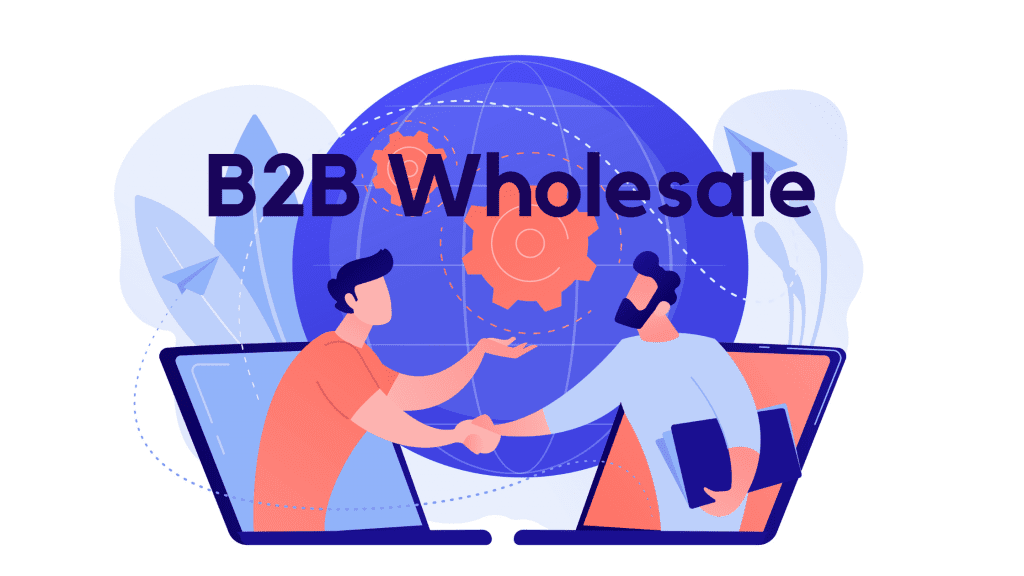
And, B2B “wholesale” is the term defined for such B2B businesses that buy and sell products in bulk. This can happen either directly or indirectly through an intermediary such as a distributor or agent.
What are the types of B2B Wholesale?
There are two main types of B2B wholesale:
- Direct Channels
- Indirect channels
Direct Channels in B2B Wholesale
Direct channels involve a direct relationship between the buyer and the seller, such as when a company purchases products directly from a manufacturer. This type of transaction is often used when the buyer is looking for a specific product or wants to develop a long-term relationship with the seller.
Indirect Channels in B2B Wholesale
In contrast, indirect channels involve an intermediary such as a distributor, agent, or broker. The intermediary helps to connect buyers and sellers for the products and services that they want to exchange. This type of transaction is often used when the buyer is looking for a wide variety of products from different sellers.
When should I start selling B2B?
There’s no straight answer to this question – it depends on your business goals.
If you’re just starting out, it might be best to focus on other channels first, such as selling directly to consumers or through brick-and-mortar stores.
Once you have a satisfactory amount of customers, you can then start thinking about adding B2B wholesale to your sales mix.
The bottom line is that there’s no rush – take your time and make sure you’re ready before making the jump into selling to B2B customers.
Ready to impress your B2B customers? Start wholesaling like a pro. 😊
Try our Wholesale Pricing Discount app for free !
What’s the current scenario of the B2B Wholesale market?
The B2B wholesale market is huge. The global business-to-business e-commerce market size was estimated at USD 18,665.95 billion in 2023 and is projected to grow at a compound annual growth rate (CAGR) of 18.2% from 2025 to 2030. (Source)
There are many different types of businesses that participate in B2B wholesale. Some common examples include manufacturers, distributors, wholesalers, and retailers. These businesses can be of any size, from small businesses to large enterprises.
What are the benefits of running a B2B Wholesale e-commerce store?
Running a business-to-business wholesale store can benefit you with many things.
One of the biggest benefits you get is that you can tap into a large and growing market. As we mentioned before, the B2B sector is huge and it is only getting bigger. This provides plenty of opportunities and benefits to businesses of all sizes to find their niche and succeed.
Some of the most common benefits include:
(1) Access to a larger customer base
When you sell through channels like distributors or agents, you can reach a much larger group of potential customers as compared to selling only through direct channels.
This is because indirect channels give you the ability to reach customers that you would not have access to otherwise.
For example, if you are a small business selling products through a distributor, you can reach all of the businesses that the distributor sells to. This could be hundreds or even thousands of potential customers that you would not have had access to without the help of an intermediary.
(2) Build brand awareness
Another benefit of B2B wholesale channels is that they can help to build brand awareness for your company and products.
When you sell through a distributor or agent, your products will be exposed to a larger group of people, which can help to increase brand recognition and visibility.
This can be a great way to build awareness for your company, especially if you are a small or new business. Brand recognition and more visibility can lead to increased e-commerce sales and customers in the long run.
(3) Lower costs
It is often cheaper to sell through indirect channels than it is to sell through direct channels. This is because you can save on costs like marketing and distribution.
When you sell through a distributor or agent, they will often handle most of the marketing and distribution for you. This can save you a lot of money, which can be beneficial for small businesses with limited budgets.
(4) Greater flexibility
Another advantage of B2B wholesale E-commerce is that it can provide you with greater flexibility. For example, if you are a small business, you may not have the resources to set up your own distribution network.
By selling through an intermediary, you can get your products to market quickly and without having to make a large investment. This can give you the time and flexibility to grow your business at a pace that suits you. Selling B2B wholesale also gives you the flexibility to set prices according to your revenue goal.
(5) Increased sales
One of the main reasons companies sell through B2B wholesale is to increase sales. When you sell through a distributor or agent, you can reach a larger group of potential customers, which can lead to increased sales.
Read Also: Automating Wholesale Invoicing and Payment Reminders
Selling B2B also allows you to form partnerships with other businesses. For example, if you are a small business selling products through a distributor, the distributor may be willing to promote your products to their customers. This could lead to increased sales and exposure for your business.
What are some challenges of B2B Wholesale?
Even though there are many benefits to selling through B2B wholesale channels, there are also some challenges that you should be aware of.
One challenge is that you may not have better control over selling your products or you may run out of stock when your wholesale customer buys beyond the bulk quantity threshold or the items you have in your inventory.
Another challenge is that it can be difficult to build relationships with buyers when you are selling through an intermediary. This is because the intermediary is typically the one who has a direct relationship with the buyer.
As a result, it can be difficult to get feedback from buyers and build a rapport with them.
Finally, selling through indirect channels can often take longer than selling directly to customers. This is because there are usually more steps involved in the process, such as dealing with multiple intermediaries.
Despite these challenges, B2B wholesale can be a great way to grow your business and reach new markets. If you want to sell through B2B wholesale channel then it is important that you should do some research and look at the pros and cons before making your decision.
Pros and Cons of B2B Wholesale
Now that you know some of the benefits and challenges of B2B wholesale, let’s take a more detailed look at the pros and cons.
Pros of B2B/Wholesaling:
- Can help to increase brand awareness within the industry
- Can lead to an increase in your revenue in the long run
- Can save on costs like marketing and distribution
- Gives you greater flexibility
- Can provide opportunities to form partnerships with other businesses
Cons of B2B/Wholesaling:
- May have less control over how your products are sold
- Can be difficult to build direct relationships with buyers
- The selling process can often take longer than selling directly to customers.
Do you need a wholesale license to sell B2B?
In short, no—you don’t need a wholesale license to sell B2B. However, there are some exceptions, such as if you’re selling alcohol or tobacco products.
If you’re unsure about whether or not you need a license, it’s always best to check with your local government first.
If yes, how to get a Wholesale license?
The process for getting a wholesale license varies depending on your country, state, and the products you’re looking to sell.
In the US, for example, you would need to contact your state’s Alcoholic Beverage Control Board to get a liquor license.
For tobacco products, you would need to contact the Tobacco Tax Administration in your state.
Finally, if you’re selling food products, you would need to get in touch with your local health department.
Again, this is just a brief overview—if you’re planning on selling B2B wholesale in the US, it’s best to do some more research or contact a professional in the space to help guide you through the process.
Ready to impress your B2B customers? Start wholesaling like a pro. 😊
Try our Wholesale Pricing Discount app for free !
How to set up a B2B wholesale e-commerce store?
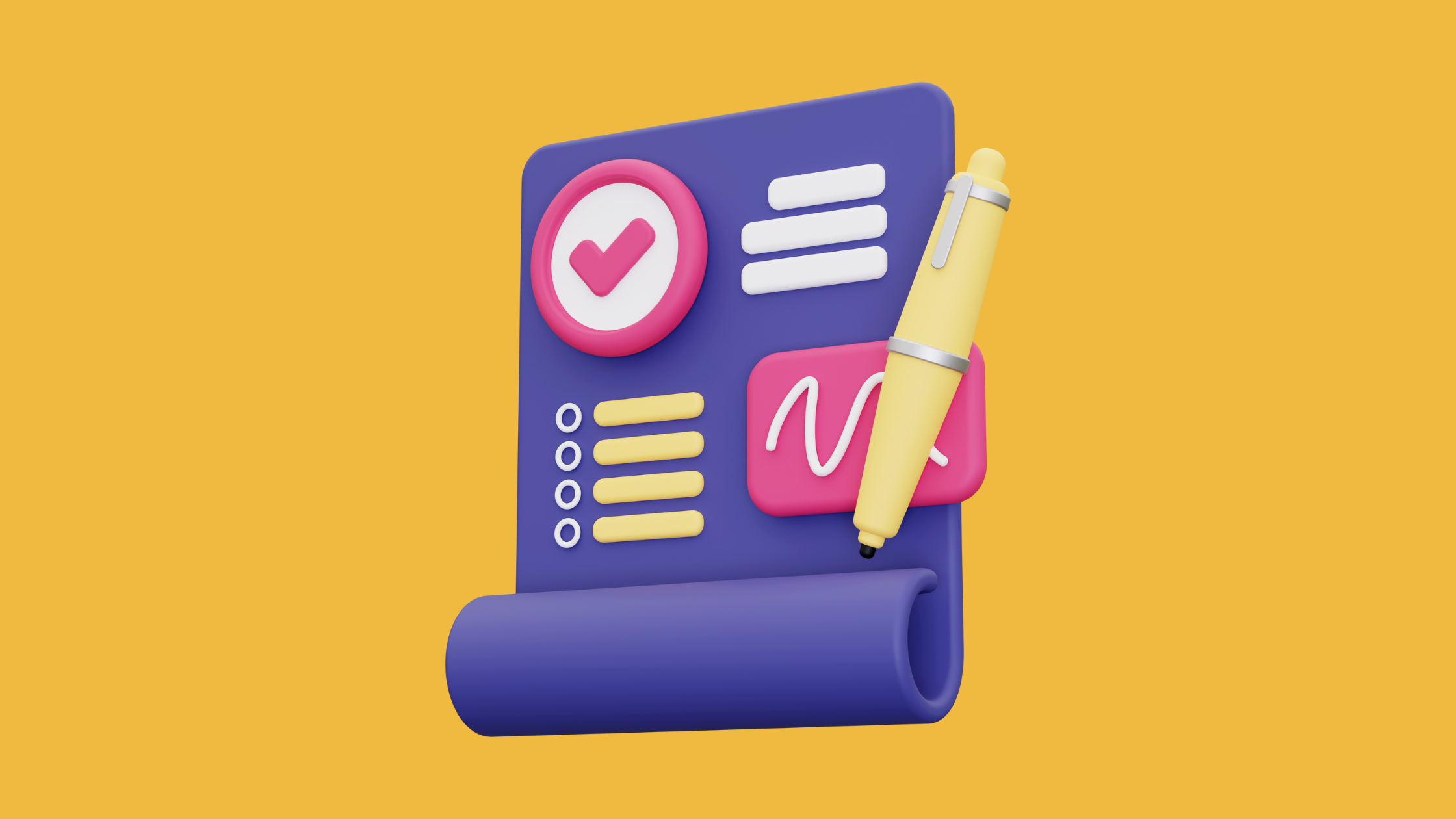
There are a few things you’ll need to do in order to set up a B2B wholesale ecommerce store.
But before thinking about setting up a B2B wholesale ecommerce, you might want to think about whether you want to sell wholesale on a 3rd party marketplace or you want to have your own store or an ecommerce website where you’ll sell products in bulk to your B2B customers.
If you want to build a B2B wholesale ecommerce store, there are a few things you’ll need to do:
1. Select a proper product that has value, some differentiation, and good margins
When you start a new business, it is always important to do proper market research and look at your competitors. See how their website is designed, what kind of customers they target, where they reach out to the potential customers, what kind of products they sell, what is their current and projected sales and revenues, how many customers they have, and many other similar things.
2. Choose a platform to wholesale your products
After looking at the market and evaluating your competitors, it is now time to choose a platform to set up your B2B wholesale business and start implementing the positive learnings of your thorough research. It can be a good design and flow of the website, categorization of products, better pricing strategy, etc.
We mentioned a few B2B wholesale platforms in this article below such as, Shopify, WooCommerce, Prestashop, BigCommerce, Magento, etc.
3. Start building your B2B wholesale store
Building an B2B E-commerce store is far more complicated than building a simple static website. There are many components involved such as, adding products, creating multiple product pages, deciding and implementing a pricing strategy for each product, writing compelling product descriptions, SEO-friendly headings, payment integrations, designing an aesthetically pleasing layout and much more.
What’s special about building a B2B wholesale store is that it is specifically designed for a particular set of customers who want to buy your products in volumes or in bulk quantity. To manage these larger orders efficiently, many businesses turn to third-party logistics (3PL) providers, which offer comprehensive warehouse management solutions. These providers can optimize inventory control, streamline order fulfillment, and reduce operational costs.
Initially, to transform your ecommerce store into a B2B wholesale experience, you should have the following basic things:
– A wholesale signup form
– A wholesale order form
– Product pages where the wholesale pricing is displayed
– Wholesale coupon codes
– A wholesale discount strategy that includes things such as minimum quantity discount, minimum order value discount, etc.
– Net terms policy or payment gateway integration to accept partial payments from your wholesale customers
4. Attract customers by writing content and marketing on social media
Once you have a B2B wholesale store ready, it is time to let businesses know about the products you are selling. The best way to do this is to create a blog section in your store and write compelling and informative content.
You can also write about the products you are offering in your store and how they provide benefits to the end customer. Further, you can share these content pieces on the social media platform and also promote them using ads.
Also, make sure you join relevant communities & groups on social media, it will help you with a lot of things such as building relationships with interested partners and customers, getting reviews for your products, and more.
Building a B2B wholesale website can be a lot of work, but it’s worth it if you want to reach new markets and grow your business.
How to turn your current Shopify store into a wholesale business?
If you already have an eCommerce website, there are a few things you can do to turn it into a wholesale business:
1. Add a wholesale signup form on your website
This will allow interested buyers to sign up for a wholesale account on your website.
To do this, you can add a simple form to your website that prospective buyers can fill out. Include fields for their name, company name, email address, and phone number. Once you have their information, you can also reach out to them and set up a meeting or send them a catalog of your products manually. If you’re using Shopify, some great apps can help you create a wholesale signup form.
Additionally, instead of coordinating times over email, add automated scheduling so buyers can instantly book a call. With Calendly, you can publish real-time availability, auto-detect time zones, send confirmations and reminders, and route meetings to the right rep—reducing no-shows and accelerating wholesale onboarding. Add a “Book a wholesale demo” link to your signup confirmation page and follow-up emails, and embed it on your contact page so approved accounts can schedule account reviews or net-terms consultations without back-and-forth.
2. Add wholesale prices to your products
Once you have wholesale buyers interested in your products, you’ll need to add wholesale prices to your website.
To do this, you can create a separate pricing table for your wholesale buyers. This table should include the product name, SKU, price, and minimum order quantity. You can also offer bulk discounts for larger orders. (for ex: Buy 12-23 items, get a 20% discount, Buy 24-47 items, get a 25% discount, Buy 48+ items, get a 30% discount)
If you’re using Shopify, there are some great apps that can help you manage wholesale prices, such as Wholesale Pricing Discount.
3. Add wholesale shipping costs
If you’re selling products in bulk, you need to add wholesale shipping costs to your website. Offering a flat amount/fee or shipping fee based on the total weight of the items can maintain transparency between you and your B2B wholesale customer.
You can also offer a shipping fee based on the minimum order amount and a fast delivery option.
4. Lock or hide specific products and collections from your retail customers
Once you’ve added wholesale prices to your products, you’ll need to lock or hide these products from your retail customers. This can be done using a password-protected page or by setting up a separate customer group for wholesale buyers.
If you’re using Shopify, there are some great apps that can help you lock or hide products from specific customers, such as Wholesale Lock Manager.
5. Create a wholesale order form to take wholesale orders in your store
A wholesale order form is a great way to take orders in bulk from your wholesale customers in your store.
This form should include fields like product image, product name, SKU, price, product weight, added quantity, quantity increment option, barcode, product weight, and finally, an Add to Cart button.
6. Create a page to display net terms for wholesale orders
If you offer net terms to your wholesale customers, you’ll need to create a page on your store that outlines these terms.
This page should include information like the minimum order amount, payment methods, discount tiers, and payment terms.
7. Fulfill orders and engage with your wholesale customers
Once you’ve received a wholesale order, it’s time to fulfill it and send the products to your customer. You should also reach out to your customers and thank them for placing an order with you.
8. Offer a quick re-ordering option for repeat orders
For customers who place repeat orders, you can offer a quick re-ordering option in your store. This will allow them to quickly and easily place their order without having to fill out the entire form again.
5 Best B2B Wholesale Platforms to run your E-commerce Business
When it comes to setting up a B2B wholesale business, there are a few different platforms you can choose from. All the below-mentioned ecommerce platforms are mainly B2C but they do have the ability to run wholesale stores with the help of add-ons such as third-party apps, plugins and extensions.
(For example, in the case of the Shopify platform, you can upgrade to Shopify Plus or add a Wholesale app from the Shopify app store that will enable the wholesale area on your current ecommerce store.)
Now, let’s look at the best B2B wholesale platforms that you can use to run your wholesale ecommerce business:
1. Shopify
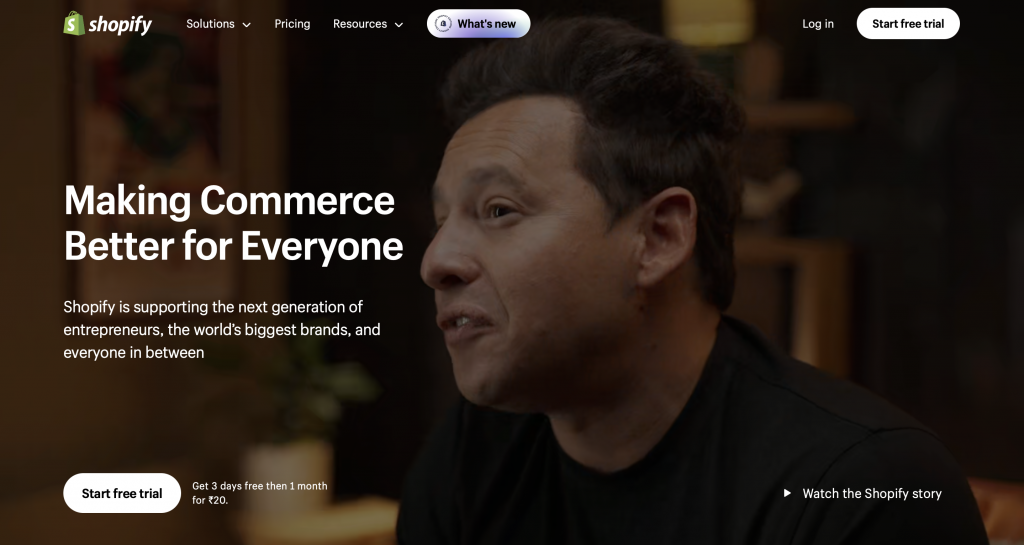
Shopify is an excellent option for businesses that are just getting started with B2B wholesaling. The ecommerce platform has over 10.32% market share of the total E-Commerce market. It’s easy to use and has all the features you need to get started. Plus, there are plenty of apps and add-ons that can help you customize your Shopify wholesale store for wholesale customers.
Pricing:
- Basic: $29/month
- Shopify: $299/month
- Advanced: $299/month
2. WooCommerce
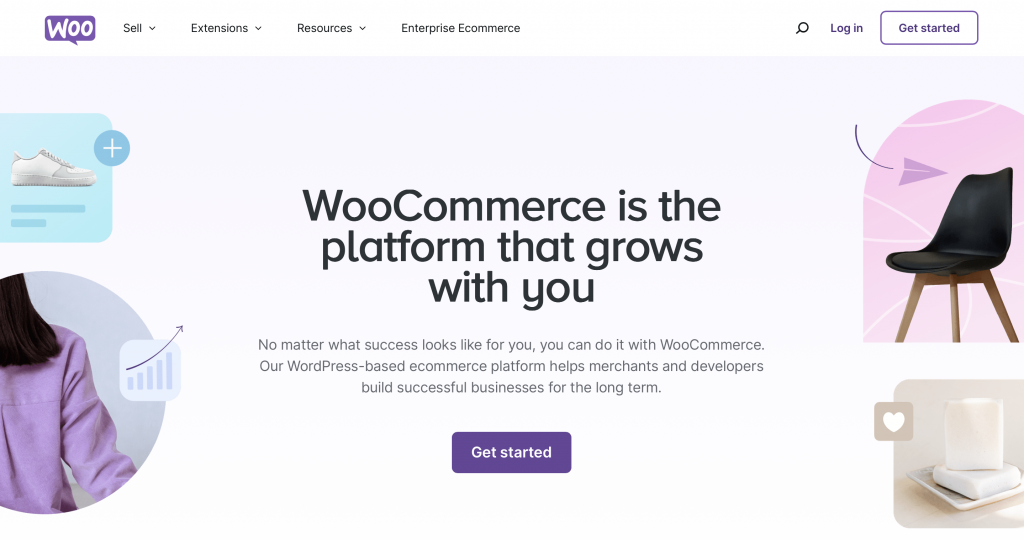
WooCommerce has over 83 million+ downloads and is a good option for businesses that are already using WordPress for their website. It also offers a wide pool of themes and plugins that can help you customize your store for wholesale customers. The pricing for WooCommerce is flexible.
3. Prestashop
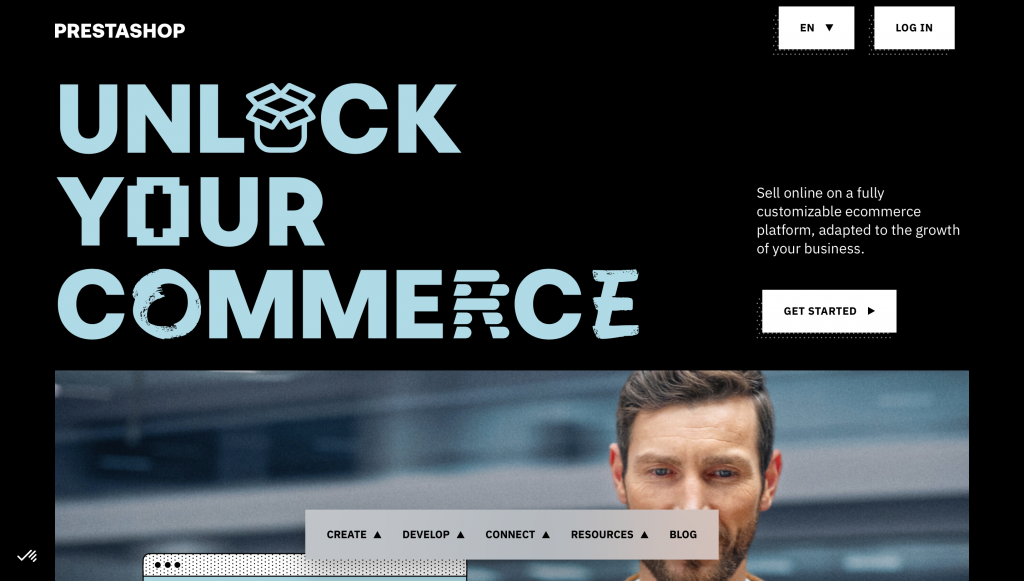
Prestashop is still considered one of the best ecommerce platforms among store owners. It also includes everything you need to get started with wholesaling, including inventory management, Shopify order fulfillment, and shipping. PrestaShop is free to download and use.
4. BigCommerce
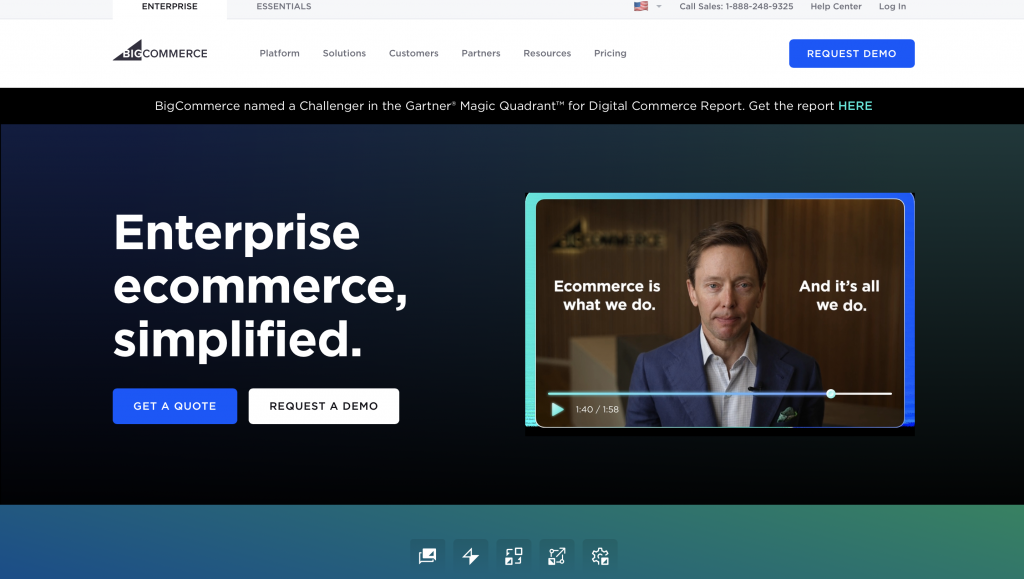
BigCommerce is especially popular among mid-size and enterprise companies. 0.4% of all websites are built with BigCommerce. It is a great platform to go for when you’re looking to sell products on wholesale to your b2b customers.
Pricing:
- Standard: $29/month
- Plus: $79/month
- Pro: $299/month
5. Magento (now Adobe Commerce)
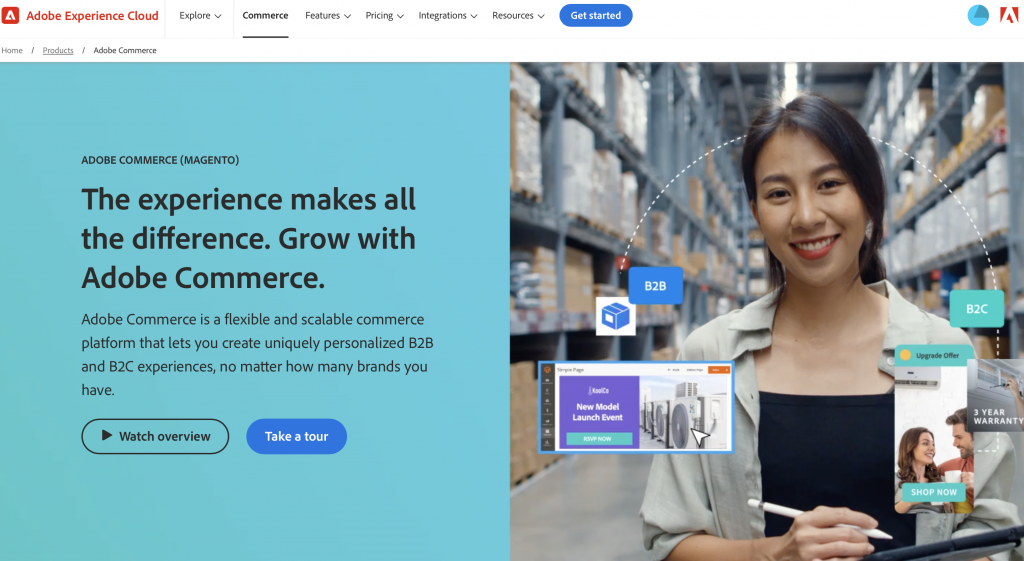
Magento, also known as Adobe Commerce is also a good B2B wholesale platform that you can choose. Magento powers around 250K ecommerce stores worldwide. They also have a community page where you can discuss issues and questions with likeminded people.
Pricing:
- Community Edition: FREE
- Enterprise Edition: Starts at $22,000/year
How Wholesale Helper can help you?
Wholesale Helper offers a variety of B2B wholesale apps that can help you set up a complete B2B wholesale experience on your Shopify store. With these amazing apps, Shopify store owners can easily offer volume and quantity discounts, wholesale signup forms, and wholesale order forms to their wholesale customers. The apps developed by Wholesale Helper also allow you to lock or hide products/collections, prices, specific URLs, Add to cart button, or any other page content from the retailers.
Wholesale Helper offers the following amazing apps:
Currently, Wholesale Helper is helping over 7000 Shopify store owners with the wholesale experience in their stores.
Ready to impress your B2B customers? Start wholesaling like a pro. 😊
Try our Wholesale Pricing Discount app for free !
Sum Up
Companies that sell wholesale products to other businesses on their ecommerce stores comparatively make larger profits and see increased sales as compared to the ones that only sell directly to consumers. We hope that this comprehensive guide on B2B wholesale helped you with starting up your own wholesale store.
Thanks for reading!
Let us know if we missed anything. Write us in the comments section below.
Frequently Asked Questions
What features should I look for in a wholesale eCommerce platform?
Seek a wholesale eCommerce platform that offers scalability to grow with your business, easy integration with your current systems to ensure seamless operations, robust inventory management for efficient stock control, and customer-specific pricing options to cater to different buyer groups.
What are the main differences between B2B and B2C eCommerce platforms?
B2B platforms are designed with complex pricing structures, bulk order capabilities, and account management features, distinguishing them from B2C platforms.
How can I optimize my B2B wholesale solution on Shopify for mobile users?
To optimize a B2B wholesale solution on Shopify for mobile users, ensure your site is mobile-responsive, streamline the checkout process for efficiency, and consider mobile-first designs and functionalities.
What are the benefits of using dedicated B2B wholesale eCommerce platforms?
Dedicated B2B wholesale eCommerce platforms offer significant benefits such as multi-tiered pricing for different customer groups, exclusive catalogs, and advanced order and inventory management.
How important are payment terms in B2B wholesale eCommerce?
Offering flexible payment terms is crucial in B2B wholesale eCommerce as it can significantly impact attracting and retaining B2B customers by accommodating their cash flow needs, which is a key consideration for businesses on wholesale eCommerce platforms.
How do volume discounts influence buyer behaviour in B2B wholesale eCommerce?
Volume discounts incentivize larger orders, encourage customer loyalty, and improve inventory turnover in B2B wholesale eCommerce, highlighting the strategic use of pricing to drive sales on wholesale eCommerce platforms.

![B2B Wholesale – The Ultimate Guide [2025] B2B Wholesale](https://wholesalehelper.io/blog/wp-content/uploads/2022/06/B2B-Wholesale.png)
